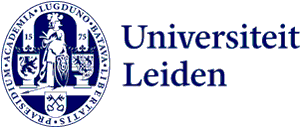
Focussing on lifelong mental health
A healthy and happy society. This is what researchers from the Faculty of Social Sciences are working towards, together with a selection of partners from different disciplines and regions. To further structure research about Health and Well-being, the faculty has identified three focus area’s. Researchers Renate Buisman (Education and Child Studies) and Anke Klein (Psychology) talk about ‘their’ focus area: Mental health across the lifespan.
The focus area Mental Health across the Lifespan focuses on the mental well-being of people of all ages, from infants to the elderly. The emphasis lies on understanding, preventing, and treating mental health problems in a variety of contexts, such as the family, school, and work environment.
Social environment
In this focus area, fundamental research is linked to practical applications, such as diagnostic tools, treatment programmes, and training courses. The key aspect is an eye for the social environment of individuals, which may include parents, teachers, and healthcare professionals. Renate Buisman: 'We are increasingly trying to conduct our research in co-creation with societal partners. Determining together at an early stage what is needed and what possibilities there are. Actual practice already encapsulates so much knowledge!'
Impact on citizens
Through early identification and prevention of, and effective support for, mental health problems, research within this focus area directly contributes to enhancing citizens’ well-being. Anke Klein: 'We want to translate insights into applicable interventions to reduce health inequalities and boost resilience in society.'
Mutual contact
In addition, the focus area helps bring together researchers from different parts of the Faculty of Social and Behavioural Sciences. Lectures, knowledge cafés, and meetings on a specific theme create spaces for contact, inspiration, and creativity. Buisman: 'Collaboration starts with meeting each other: recognizing shared interests and wonder and building on each other's experience, knowledge, and networks. This has so much added value and certainly benefits science.'
Teens and fathers
Buisman and Klein's research topics are good examples of research within this theme. Anke is part of an interdisciplinary team looking at ways to better support young people with anxiety and stress within the context of Dutch vocational secondary schools, and Renate organised a Leiden Healthy Society Center knowledge café on fathers’ parenting involvement, which enhanced her contacts with practitioners and provided many new insights. Buisman: 'In my research, I also use innovative technologies such as wearables to follow fathers in their home situation, which provides a more realistic picture than in a laboratory. Fundamental and applied research thus reinforce each other.'
About the focus areas
To further structure the research within profile area Health and Well-being in a Healthy Society, FSW is working with three focus areas:
- Mental health across the lifespan
- Health promotion and resilience
- Social inequality of health
The other two focus areas will be introduced soon.
